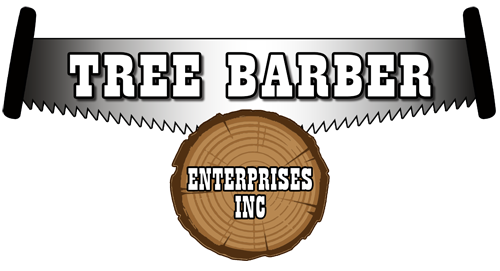Common Tree Pests
If trees are not closely monitored, insects (as well as diseases) can seriously harm the health of your trees. At Tree Barber, we manage insects by maintaining the health of trees by doing many things including pruning and creating optimal soil conditions. The healthier your trees are, the less chances insects can damage them. Here are some common tree pests in Southern California and how to deal with them.
Eugenia Psyllid
Eugenia Psyllid are insects often found on Australian Brush Cherry trees (or Eugenia or Szygium trees). These insects suck plant juices and produce sticky honeydew that creates sooty mold. This distorts and discolors new leaf growth, which eventually causes defoliation and die back. To prevent Eugenia psyllid from infesting your trees, don’t over-water and fertilize unnecessarily as doing so will cause new foliage to become soft, which only attracts more psyllids. In California, parasitic wasps have been released to help control the psyllid population. Now these wasps are naturally appearing throughout the state but they cannot be purchased and released so property owners can only hope they find their Eugenia trees to help control the psyllid population. If you notice these insects on your trees, prune the terminal branches after the spring growth as this helps remove any psyllid eggs or nymphs. Do this every three weeks or as long as you continue seeing adult psyllids. Removing affected leaves is the only way to eliminate damaged foliage.
Polyphagous Shot Hole Borer
Tinier than a sesame seed but as deadly as poison, the polyphagous shot hole borer threatens many tree species in San Diego including the native California Sycamore and the iconic Coast Live Oak. While no one is sure how this insect found its way to California, it is thought that it perhaps arrived in shipping crates from southeastern Asia. As a very voracious beetle, the polyphagous shot hole borer was first sighted in 2003. Since then, the polyphagous shot hole borer has been found across Los Angeles and northern Orange Counties and as far south as Laguna Beach and as far west as the International Airport in LA where it has infested many coral trees. We are now seeing an increase in San Diego as well.
This aggressive beetle carries a tree-killing fungus in its mouth. The fungus spreads as the insect burrows to lay eggs, attacking the vascular tissue of the plant wherein the flow of water and nutrients to the tree is blocked. Thus far it’s been discovered that the polyphagous shot hole borer is problematic for dozens of species of trees including many landscape trees in Southern California such as the Castor Bean, Box Elder, Avocado, Coast Live Oak, Olive, Silk tree, Sweet Gum, Coral tree, Weeping Willow, Palo Verde, Chinese Willow and White Alder in which this beetle prefers to reproduce.
Symptoms of a polyphagous shot hole borer infestation are tiny pinholes in tree bark and powder that resembles sawdust called frass around these holes. Large sap stains are also common near these holes. By scraping deeper into the bark layer around the holes, the beetle will leave behind visible circular tunnels call galleries. It’s best to cut away-infected branches and to put them through a chipper as doing so kills most of the insects. Then cover the wood chips with a tarp for at least two months in direct sunlight, as the heat will destroy the remaining beetles.
About Tree Barber
Tree Barber is proud to be among the top tree care professionals in Southern California. On staff at Tree Barber are only qualified, certified arborists and certified tree workers. Our owner, Paul Rider, is a certified tree arborist which means he’s an individual who has achieved a high level of knowledge in the art and science of tree care through hands-on experience and by successfully passing an examination developed by some of the country’s top experts on tree care. The staff at Tree Barber is proud to offer our quality tree services to North County San Diego residents including those living in the surrounding communities.
View our YouTube video to hear what Paul Rider, our Certified Arborist has to say about Eugenia Psyllid and other tree pests mentioned above.
More questions about tree pests? Feel free to call us today: 760.745.7871
Offering quality tree care services to residents in and around North County San Diego, including the communities of San Marcos, Vista, Oceanside, Solana Beach, Carlsbad, Del Mar, Leucadia, Encinitas, Escondido, Bonsall, Fallbrook, Poway, Rancho Bernardo, 4S Ranch, Rancho Penasquitos, Rancho Santa Fe, Santa Luz and San Elijo Hills.

